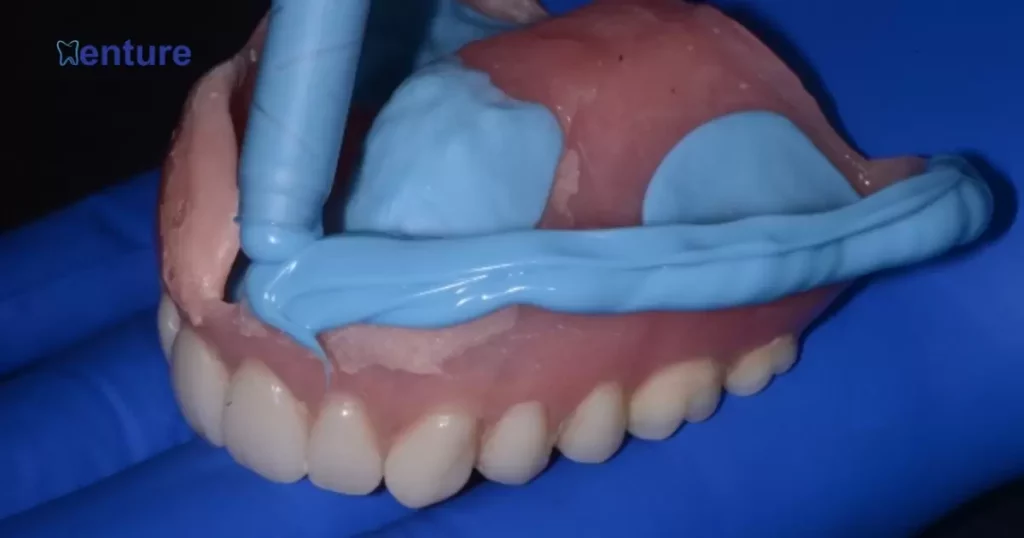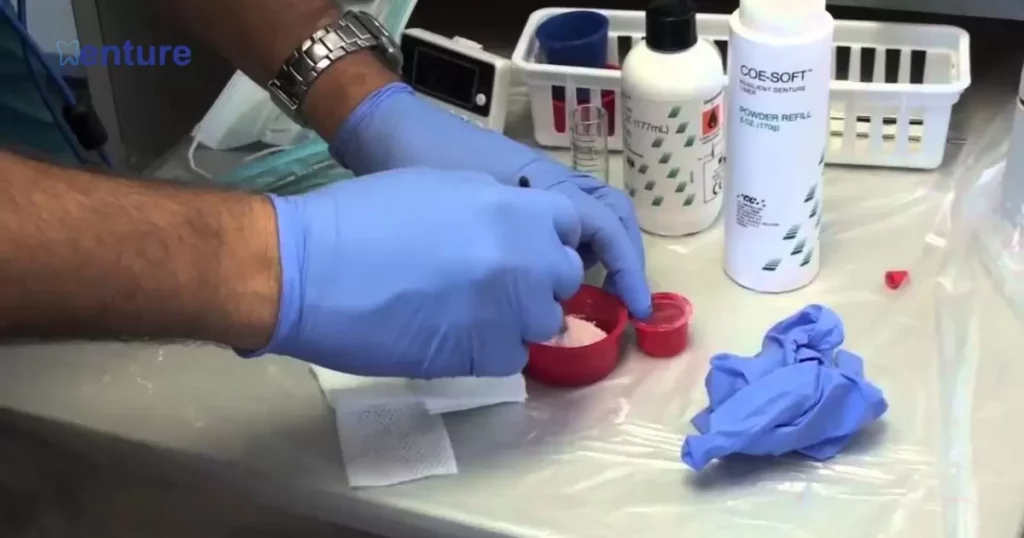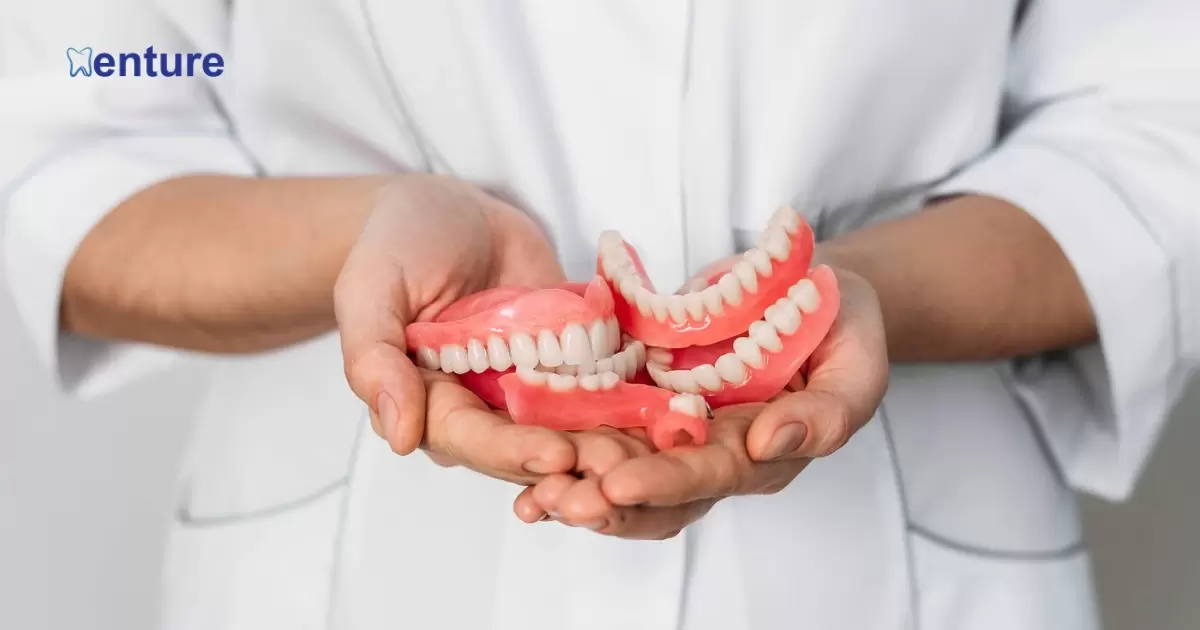When your dentures don’t fit quite right, a trip to the dentist for a reline can make a big difference. During this process, the dentist adjusts the base of your dentures to snugly fit the contours of your gums. This ensures a comfortable and secure fit, preventing any slipping or discomfort.
A visit to the dentist for a reline could be the game-changer you need. The process involves fine-tuning the fit of your dentures to match the unique shape of your gums. Say goodbye to slipping and discomfort as your dentist ensures a snug and secure fit.
A quick trip to the dentist for partial denture realignment can transform your daily comfort. No more awkward adjustments or constant worry about slipping partial dentures. The process involves personalized tweaks for a snug fit tailored to your unique gum contours.
When Is a Reline Necessary?
If you notice discomfort, sore spots, or a loose fit, these are clear signals. A timely reline ensures your dentures stay in sync with changes in your gum structure.
Weight changes, aging, or natural alterations in your oral tissues can impact your denture fit. Regular evaluations help catch these changes early. Don’t wait for persistent discomfort; schedule a reline when your dentures start to feel less secure.
Denture Relining Explained
Denture relining is a dental procedure aimed at adjusting the fit of removable dentures. This process involves modifying the base of the denture to improve its contact with the gums, thereby enhancing stability and comfort for the wearer. Relining can be classified into two main types: hard relining and soft relining.
Hard Relining
Hard relining involves the application of a rigid material to the denture base, creating a new surface that conforms to changes in the shape of the jawbone. This is typically done using a material such as acrylic resin.
Soft Relining
Soft relining, on the other hand, involves the use of a pliable material that conforms to the contours of the oral tissues. This type of relining is often recommended for individuals with sensitive gums or those who experience discomfort with hard relines.
Reasons For Denture Relining

Over time, your gums can change shape, affecting the fit of your dentures. This natural process is one of the key reasons for denture relining. When your dentures become loose, it’s a signal that a visit to the dentist for a reline is in order.
Another common reason for denture relining is wear and tear. Just like any well-used item, dentures can experience gradual changes in shape and structure. This can lead to discomfort and a less-than-optimal fit.
The Denture Reline Process
During the denture reline process, your dentist takes a close look at the fit of your dentures. They skillfully make adjustments to the base, ensuring it snugly conforms to the unique shape of your gums. This personalized touch is what sets the stage for increased comfort and stability.
There is no need to endure the inconvenience of ill-fitting dentures any longer. The dentist’s meticulous work during the reline session ensures that your dentures stay securely in place, allowing you to go about your daily activities with confidence.
Benefits of Denture Relining
Denture relining is a process in which the base of a denture is resurfaced or replaced to improve its fit. This can be done for both complete dentures (full dentures) and partial dentures. Here are some benefits of denture relining:
Improved Comfort: Over time, changes in the shape of the jawbone and gums can occur, leading to a poor fit of the dentures. Relining helps to adapt the denture to these changes, ensuring a more comfortable and secure fit.
Better Stability: A well-fitted denture is more stable in the mouth, reducing the risk of slippage or movement while talking, eating, or smiling. This can enhance confidence and the overall quality of life for denture wearers.
Prevention of Sore Spots: Ill-fitting dentures can cause friction and pressure points on the gums, leading to sore spots and discomfort. Relining helps to redistribute pressure more evenly, reducing the likelihood of sore spots and ulcers.
Improved Chewing Efficiency: When dentures fit properly, they function more effectively during chewing and biting. This can improve the ability to eat a wider variety of foods and contribute to better overall nutrition.
Enhanced Speech: Poorly fitting dentures can affect speech by causing slurring or mumbling. Relining helps to ensure a snug fit, which can contribute to clearer and more natural speech
Consultation with a dentist or prosthodontist is essential to determine the most appropriate course of action based on individual needs and oral health conditions.
Which Reline Is The Right Choice?
There are two main types to consider. Soft relines use a pliable material for enhanced comfort, making them ideal for sensitive gums. Hard relines, on the other hand, provide durability but may be less forgiving on tender tissues.
Soft or hard, the decision depends on your lifestyle and comfort preferences. Soft relines offer a gentler touch, making them perfect for those with sensitive gums seeking a cushioned feel. Hard relines, known for their durability, maybe the preference if you prioritize long-lasting stability.
Difference Between Relining And Rebasing
When it comes to dentures, understanding the difference between relining and rebasing is key. Relining involves adjusting the base of your dentures to better fit your gums, ensuring a snug and comfortable feel.
Relining is like a tailored adjustment, refining the fit to match your gum contours. It’s ideal when your dentures feel a bit off but are generally in good condition. Rebasing, however, is a more comprehensive makeover, replacing the entire base for a renewed fit and function.
How Much Do Denture Relines Cost?

Prices can vary, influenced by factors like your location, the dentist’s fees, and the type of reline needed. Typically, expect costs to range from $300 to $500. It’s wise to check with your dentist, as some dental insurance plans may cover part or all of the expenses.
The investment is in your comfort and confidence. A well-fitted denture can positively impact your daily life, making the cost a worthwhile consideration. Don’t hesitate to discuss financial aspects with your dentist to find the best solution for both your budget and oral health needs.
Frequently Asked Questions
Can I reline dentures at home?
It’s not recommended. Professional denture relining ensures precision and long-lasting comfort. DIY attempts may lead to improper fittings.
How long does a denture reline take?
Typically, it takes one appointment, lasting around one to two hours. The dentist makes adjustments and ensures a proper fit during this time.
Will insurance cover denture relines?
Some dental insurance plans cover part or all of the cost. It’s advisable to check with your insurance provider to understand your coverage before the procedure.
Conclusion
Denture relining is a straightforward process that is painless and lasts about one to two hours. With recommended adjustments every two years, this routine care ensures a personalized fit, promoting comfort in daily activities.
While the cost varies, ranging from $300 to $500, the benefits are significant. The investment in your well-being, coupled with potential insurance coverage, makes denture relines a practical and worthwhile consideration. If you’ve been experiencing discomfort or notice changes in the fit of your dentures, consulting a dentist to reline your dentures can enhance both comfort and functionality.











